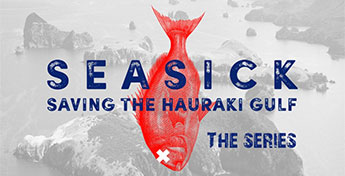Recreational Fishing
FNX 9.3
Upcoming Show Times:
5:30 PM on Dec 20, 2025
5:30 PM on Dec 20, 2025
Past Show Times:
5:30 PM on Nov 1, 2025
5:30 PM on Nov 1, 2025
There are many, many recreational fishers and this is a problem too. How to educate recreational fisher people, investigate fish limits and sizes with sustainability in mind. But mainly, look at marine protected areas, types, and uses where fish can breed safely, and seafloor material can get established perpetuating more life. Perhaps there?s an indigenous solution.
Pollution
FNX 9.3
Upcoming Show Times:
5:30 PM on Dec 27, 2025
Past Show Times:
5:30 PM on Nov 8, 2025
5:30 PM on Nov 8, 2025
Mitigate land runoff, more active measures are needed by council, developers, and farmers. Look at what Auckland is doing to fix this issue. Look at a good news story about cleaning a bay with mussel farming.
Te Ao Maori, The Maori World View
FNX 9.3
Upcoming Show Times:
5:30 PM on Jan 3, 2026
Past Show Times:
5:30 PM on Nov 15, 2025
5:30 PM on Nov 15, 2025
Explain the indigenous Maori mindset as regards the environment. Pre-colonial Maori fishing philosophies and techniques make sense. View the harbor as a treasure to be shared by all-take only what's needed not a resource to plunder or profit from. Show how traditional views and modern sustainability views are essentially the same view. Show the adverse environmental effects of colonialization. Be more sympathetic with nature.
Better Uses of the Treasure
FNX 9.3
Past Show Times:
5:30 PM on Nov 22, 2025
5:30 PM on Nov 22, 2025
Look at other uses for the harbor-mussel and seaweed farming. Explore sea tourism. We look at food provenance, why are we aware of egg, chicken, and other animals' welfare and origin but with seafood, we have no idea. We discuss how sustainable the seafood industry is restaurants, supermarkets, etc. Follow a good news story of handing out free fish heads and frames to Marae (Maorivillages) around Auckland.
The Future of the Hauraki Gulf
FNX 9.3
Past Show Times:
5:30 PM on Nov 29, 2025
5:30 PM on Nov 29, 2025
Is the environmental mess we find ourselves in due to our drift from nature? We look at our relationship with nature and whether greed is partly responsible for the gulf's deterioration. Look at some of the solutions. There is hope, it is not too late. What about the young people? The solution is now in their hands. Together with better government, we can make a difference.
The Treasure
FNX 9.3
Past Show Times:
5:30 PM on Dec 6, 2025
5:30 PM on Dec 6, 2025
We look at what a treasure the Hauraki Gulf is, how unique and bio-diverse it is and how abundant it once was. On the doorstep of our largest city, it is a playground for many. But it is in trouble - in fact in trophic collapse. With so many grim reports, why has so little actually been done?
Commercial Fishing
FNX 9.3
Past Show Times:
5:30 PM on Dec 13, 2025
5:30 PM on Dec 13, 2025
We are still trawling much of the marine park. Why? Is it necessary? How do we stop it? Seek alternatives to commercial fishing practices and areas fished. Is artisanal fishing (by line) OK? What about the science behind it all? The international goal is 30% protection, we have .3% currently.



 UTAH EDUCATION NETWORK
UTAH EDUCATION NETWORK

 Justin
Justin Braxton
Braxton Dani
Dani Rob
Rob Val
Val
